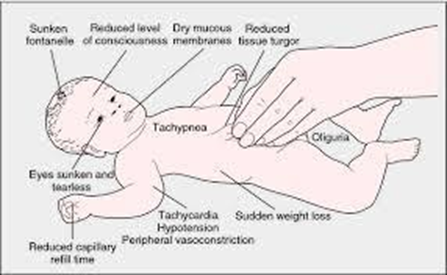A nurse is providing teaching to the parent of a toddler who is scheduled for an electrocardiogram. Which of the following statements should the nurse make?
"Your child can rest on your lap during the procedure."
"An alarm will sound if your child has an abnormal heart rhythm."
"Leads will be placed on your child's back prior to the procedure."
"This procedure will take at least 30 minutes to complete."
The Correct Answer is A
Rationale:
A. Allowing the child to sit on the parent's lap can provide comfort and support during the procedure.
B. While the electrocardiogram (ECG) machine may have alarms, they are not typically related to abnormal heart rhythms during the procedure.
C. ECG leads are typically placed on the chest, not the back.
D. The duration of an ECG is relatively short, usually only a few minutes, so stating that it will take at least 30 minutes may cause unnecessary concern for the parent.
Nursing Test Bank
Naxlex Comprehensive Predictor Exams
Related Questions
Correct Answer is C
Explanation
Rationale:
A. Periodic chest x-rays may be done to monitor lung function in cystic fibrosis, but it's not directly related to home care following discharge.
B. Tonsillectomy and adenoidectomy are not routine procedures for cystic fibrosis management unless there are specific indications beyond the disease itself.
C. Pancreatic enzyme replacement therapy with meals and snacks is essential for children with cystic fibrosis to aid in digestion and nutrient absorption due to pancreatic insufficiency, so this statement is crucial for home care.
D. Isoniazid is an antibiotic used to treat tuberculosis (TB), not cystic fibrosis, so this statement is incorrect and not relevant to cystic fibrosis home care.
Correct Answer is B
Explanation
Rationale:
A. Capillary refill time of 3 seconds is within the normal range (less than 3 seconds) and does not indicate severe dehydration.
B. A sunken anterior fontanel is a significant sign of dehydration in infants and suggests severe dehydration.

C. While a weight loss of 5% can indicate dehydration, it may not necessarily represent severe dehydration. The extent of dehydration is better assessed by clinical signs such as fontanel status, skin turgor, and mucous membrane moisture.
D. Producing tears when crying is a reassuring sign and suggests adequate hydration, so it does not indicate severe dehydration.
Whether you are a student looking to ace your exams or a practicing nurse seeking to enhance your expertise , our nursing education contents will empower you with the confidence and competence to make a difference in the lives of patients and become a respected leader in the healthcare field.
Visit Naxlex, invest in your future and unlock endless possibilities with our unparalleled nursing education contents today
Report Wrong Answer on the Current Question
Do you disagree with the answer? If yes, what is your expected answer? Explain.
Kindly be descriptive with the issue you are facing.
